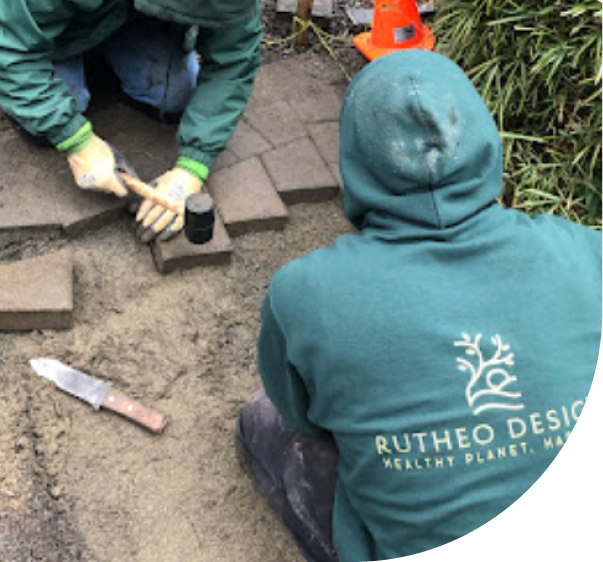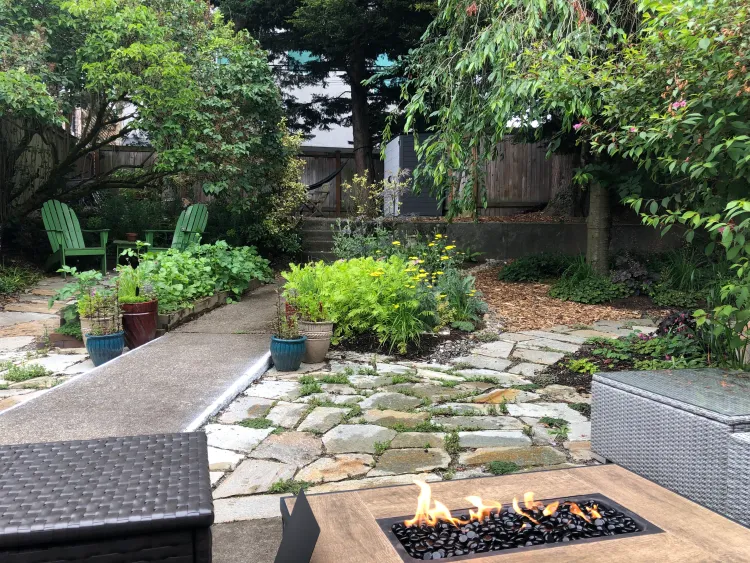
Garden art refers to the functional and aesthetic elements incorporated into outdoor spaces to enhance both the landscape’s visual appeal and practicality. These pieces can include sculptures, water features, and decorative structures, all of which contribute to the overall ambiance of the garden. In sustainable landscaping, garden decor plays a pivotal role in balancing natural beauty with environmental responsibility. By using materials that are eco-friendly and design principles that harmonize with nature, garden art helps connect people to their outdoor spaces while promoting sustainability.
Sustainable garden art is not just about decoration; it also adds value to the landscape by integrating functionality with aesthetics. Whether it’s a sculpture crafted from recycled materials or a trellis that supports climbing plants, every piece of garden decor can contribute to the landscape’s environmental goals. Beyond beautification, garden art helps create a welcoming atmosphere while serving practical purposes, like encouraging wildlife habitats or supporting plant growth.
Sustainable sculptures and installations made from eco-friendly materials like reclaimed wood, stone, and recycled metal bring personality to gardens while promoting environmental consciousness. For Seattle landscapes, choosing durable, weather-resistant materials is important to withstand the region’s wet winters and frequent rainfall. Sculptures can also be placed strategically within the garden to complement existing plantings and create visual interest.
Water features such as solar-powered fountains or rainwater-fed ponds are excellent examples of sustainable garden decor. These elements not only enhance the visual appeal of the garden but also support habitat creation for local wildlife like birds, frogs, and beneficial insects. In Seattle, where water conservation is essential, water features should be designed with sustainable techniques in mind. This could include using rainwater catchment systems or installing energy-efficient pumps to reduce resource consumption.
Water features are also an important part of creating microclimates within a landscape, offering cooler, more humid zones for plants that thrive in those conditions. This integration of functionality and beauty showcases how water features can enhance both the ecological health and aesthetic of a garden.
Incorporating sustainable materials in pathways and stepping stones ensures that the landscape design remains eco-friendly. Recycled materials such as reclaimed brick, natural gravel, or even repurposed wood are excellent choices for garden paths. These elements create a natural flow through the garden, guiding visitors while also contributing to the overall design.
Permeable paving solutions are particularly important in Seattle’s rainy climate, allowing rainwater to seep through and reduce surface runoff. This promotes better drainage and helps protect the soil structure, making it easier to maintain healthy plants while also preventing erosion.
Lighting plays an important role in garden decor, both in terms of safety and aesthetics. Solar-powered or energy-efficient lighting options can illuminate pathways, sculptures, and plantings without increasing energy consumption. By positioning lights strategically, we can highlight key areas of the garden at night, creating an enchanting environment while minimizing light pollution.
Additionally, eco-friendly lighting helps support nocturnal wildlife by reducing the impact on their natural behaviors. This ensures that the garden remains a safe, sustainable space for both people and wildlife to enjoy.
Using recycled and reclaimed materials in garden art not only reduces waste but also supports sustainable practices. Materials like reclaimed wood, recycled metal, and repurposed glass can be transformed into unique, visually striking garden decor. These materials also minimize the demand for new resources, promoting a circular economy that benefits the environment.
Reclaimed materials are often rich in history and character, adding depth and meaning to the garden’s design. Whether it’s a weathered stone statue or a bench made from old barn wood, these elements help create a space that feels both timeless and environmentally conscious.
Natural stone is another popular material for sustainable garden decor, offering durability and a timeless aesthetic. Stone pathways, walls, and sculptures are long-lasting and require minimal maintenance, making them ideal for Seattle’s climate, where weather resilience is key. Additionally, using locally sourced stone reduces the environmental impact associated with transportation, aligning with sustainable landscaping goals.
The use of natural stone also ties the garden into the surrounding landscape, creating a harmonious connection between the built and natural environments. By choosing locally available materials, we reduce the carbon footprint and help support regional industries.
Bamboo is a rapidly renewable resource that works well in sustainable garden structures. It is versatile and can be used for trellises, garden screens, and decorative edging. As a fast-growing plant, bamboo replenishes quickly, making it a highly sustainable choice for outdoor spaces.
In addition to its eco-friendly properties, bamboo can add a contemporary, clean look to the garden. Its lightweight yet sturdy nature makes it an excellent option for both decorative and functional garden elements, supporting sustainable design while contributing to the landscape’s visual appeal.
Integrating garden decor that supports local wildlife is an essential part of sustainable landscaping, especially in urban areas where habitat loss is a growing concern. Bird baths, birdhouses, and bee hotels serve as both functional and decorative elements that attract and support birds and pollinators, helping to create a thriving, balanced ecosystem. Bird baths provide water for birds to drink and bathe, while birdhouses offer safe nesting spaces for local species. Bee hotels, designed with eco-friendly materials like bamboo or untreated wood, provide shelter for solitary bees, which are crucial pollinators for plants.
These decorative wildlife structures can be designed with sustainability in mind, using reclaimed materials that reduce waste and support eco-conscious gardening. By placing these elements strategically in your landscape, you can enhance biodiversity while adding visual interest. Gardens that integrate wildlife-friendly decor not only provide aesthetic beauty but also serve as sanctuaries for important species that contribute to pollination and pest control. This is especially vital in areas like Seattle, where pollinators such as bees and birds play a critical role in maintaining local biodiversity.
Native plants are foundational to a sustainable garden, and incorporating them into garden displays or as decorative edging supports the health of local ecosystems. By selecting plants that are indigenous to Seattle’s climate, such as native grasses or flowering shrubs, we can create garden decor that enhances biodiversity and requires less water and maintenance. Native plants are more adapted to local soil conditions and weather patterns, making them a smart choice for reducing water use, especially during Seattle’s dry summer months.
Decorative native plant displays, such as carefully arranged planters or borders, not only improve the aesthetic appeal of the garden but also provide food and habitat for local wildlife. The use of planters and edging can help guide the visual flow of a garden while supporting native species. These features blend functionality and beauty, serving as both a design element and a practical solution to support ecological sustainability.

At Rutheo Designs, we are dedicated to transforming your outdoor spaces into beautiful, sustainable landscapes that reflect your vision and the unique character of the Seattle area. We offer services in native plant landscaping, water-efficient irrigation, custom landscape design, and hardscaping solutions tailored to your goals and the local environment. Every project is unique, and we take the time to listen to your needs and offer personalized solutions that align with both your aspirations and Seattle’s natural surroundings.
We invite you to reach out to us to start the conversation about your landscaping needs. You can contact us by email at connect@rutheodesigns.com or give us a call at (360) 844-2989. Whether you have specific questions or are ready to schedule a consultation, we’re eager to help you bring your outdoor vision to life with the care and expertise that Rutheo Designs is known for.